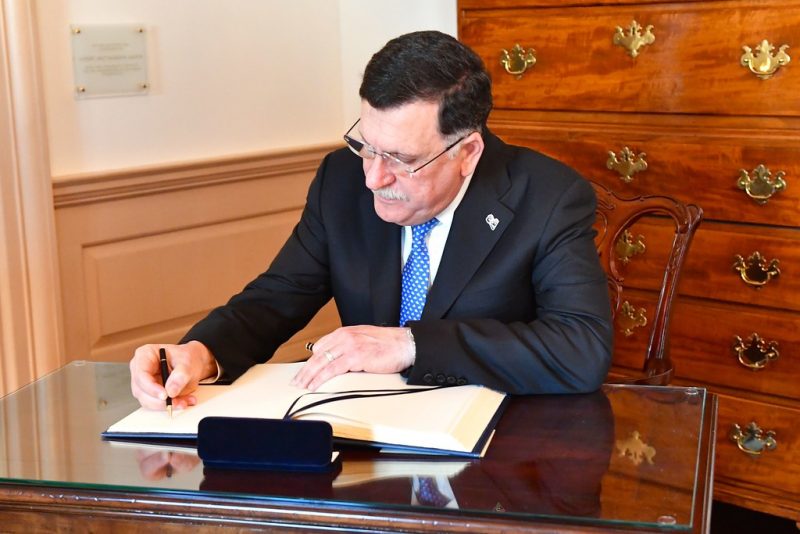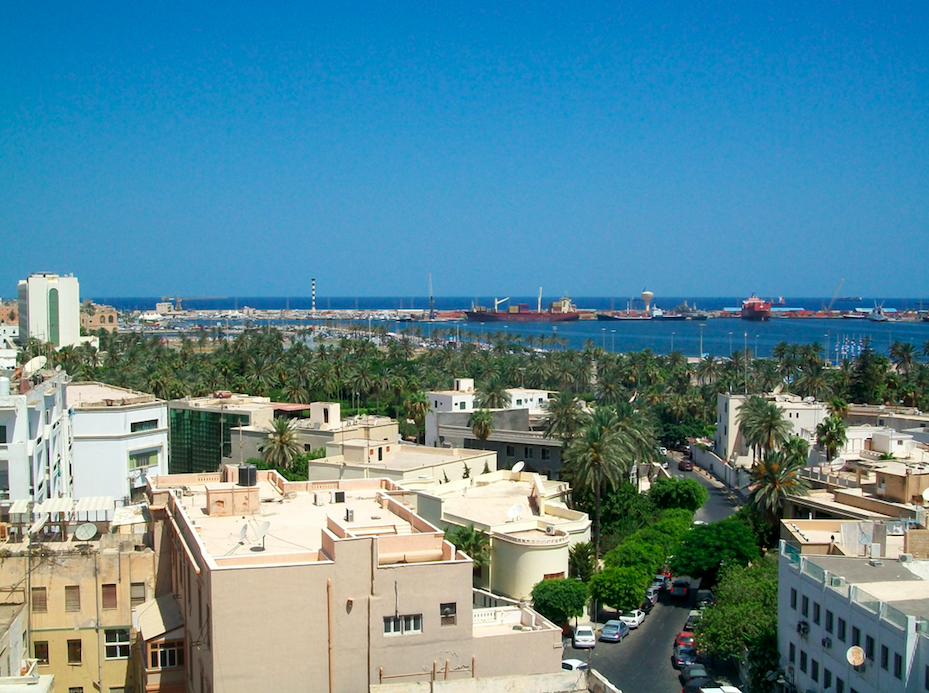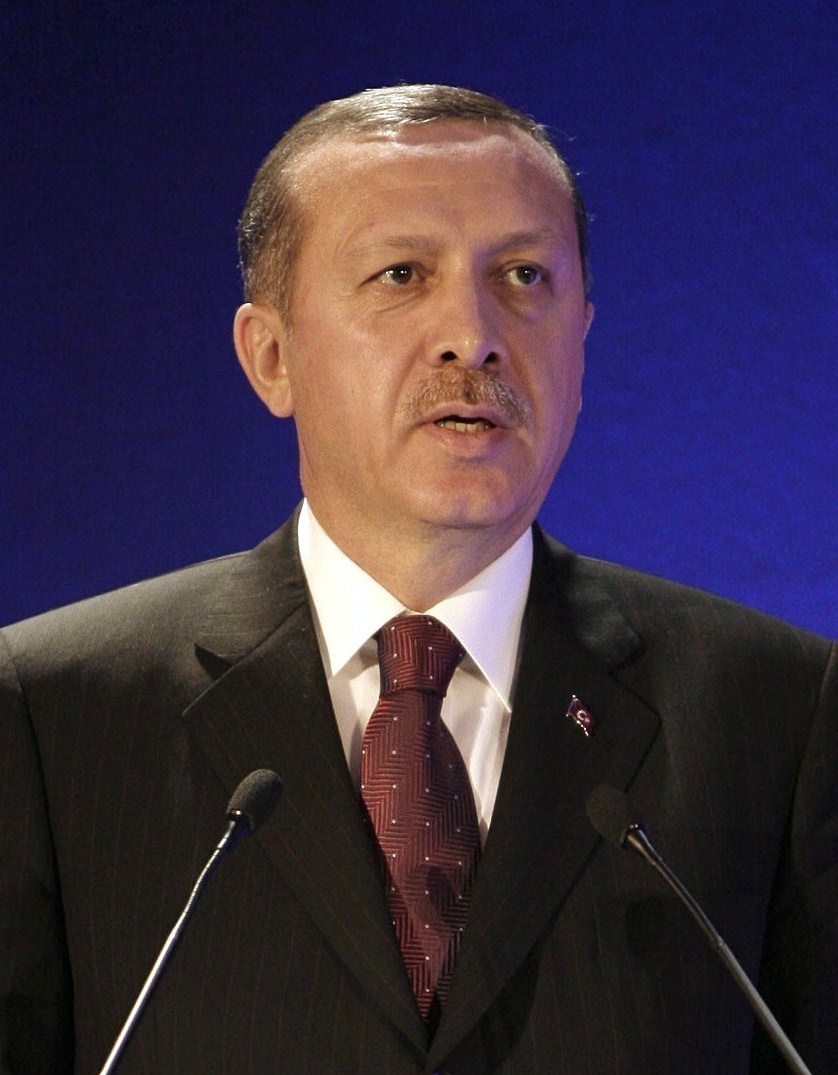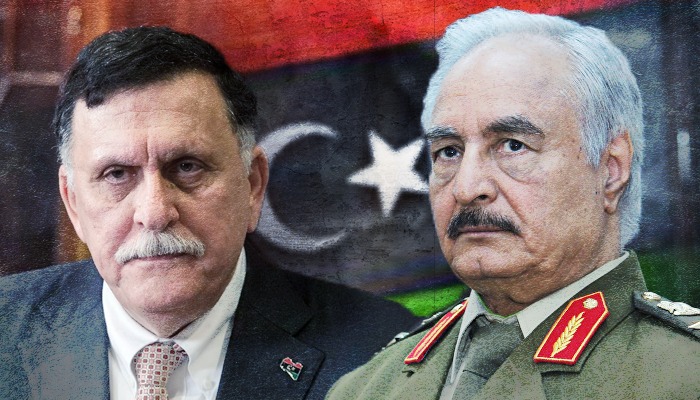Relations between Libya, under the control of Khalifa Haftar (Tobruk’s government), and Turkey are at a critical point in the aftermath of an airstrike Haftar`s forces carried out against a refugee camp in Tripoli. Haftar has refused responsibility, calling the incident a false-flag conducted by his rival al-Sarraj.
Harsh statements from both sides quickly followed, including threats of military action: Turkey demanded international organizations intervene to “pacify” Haftar, while Haftar’s Libyan National Army (LNA) decided to close their airspace to Turkish civilian aircraft heading to Tripoli and attack Turkish ships approaching the shores of Libya.
How did the conflict begin?
In the complex balance of forces in Libya, there were two main sides of the confrontation – the government in Tripoli under the leadership of al-Sarraj, supported by the United Nations and Turkey (because of its proximity to the Muslim brotherhood), and the Libyan National Army of General Khalifa Haftar. The region has been destabilized by numerous Islamic organizations like ISIS and al-Qaeda which are not subordinate to either Tobruk or Tripoli, while the southern territories are currently controlled by the African Tuba and Tuareg tribes. There is growing support for forces still loyal to the overthrown former leader Muammar Gaddafi, which are guided by his son Saif, but the main standoff is between Haftar and al-Sarraj.

Flickr
The escalation began with a new large-scale operation by General Khalifa Haftar, during which airstrikes were inflicted on a refugee camp. During the operation, Haftar’s army struck the Tajur area east of Tripoli, killing at least 50 people and injuring more than 130. At that time, the camp was mainly occupied by refugees from Africa, Egypt, and Bengal.
Since April 4, Haftar’s forces have been assaulting Tripoli with varying degrees of success, mainly from the south. Al-Sarraj’s forces have launched a counterattack known as operation “Burkan al-Gadab”.
As a result of the fighting in Tripoli, according to the World Health Organization (WHO), almost 740 people died, and more than 4,400 were injured.
The airstrike worsened the already tense stand-off between Turkey and Haftar’s forces, leaving the situation on the cusp of outright hostility.
The Turkish Foreign Ministry called the events “a crime against humanity” and called for an international investigation of the conflict, presuming Haftar’s guilt without question.
As the representative of Turkey’s Ministry of Foreign Affairs Hami Aksoy said, Turkey “calls to bring to justice all those involved in the air strike. The world community should take immediate action on this issue. ”

Wikipedia
Erdogan meets with al-Sarraj
Meanwhile, Turkish President Recep Tayyip Erdogan reiterated his support on Friday for the Tripoli government. He met with the head of the Libyan government of national consensus Fayez al-Sarraj at the Dolmabahçe Palace in Istanbul and discussed bilateral relations between Turkey and Libya, recent events in North Africa and regional issues with him.
The president also stated that he supported al-Sarraj as the only option for “peace and stability in Libya,” calling for an end to attacks by Haftar’s forces.
UN
On Friday, the UN Security Council called on the warring factions in Libya to ease tensions and agree to a cease-fire, and condemned the attack on a migrant detention center near the country’s capital.
This is the first official Security Council statement on the conflict since the outbreak of hostilities in April. The organization also called on both sides to return to political negotiations mediated by the UN.
The statement says that the Security Council is “deeply concerned” by the current humanitarian situation in the country and called on all Member States to not intervene in the conflict or take measures that exacerbate the conflict.
What provoked Turkey’s acute reaction?
Turkey (like many international organizations) recognizes only the government and the forces of al-Sarraj as legitimate.
Turkey has its own geopolitical interests in the region. Ankara opposes the Sunni states who came to be the leaders of the Arab world. Conflicts with Saudi Arabia, the United Arab Emirates, Syria and Egypt escalated after the overthrow of Morsi’s Muslim Brotherhood-aligned government in Egypt.
Erdogan is still trying to help those forces in the Arab world that are somehow connected with the Muslim Brotherhood – an organization that relies on Qatar’s economic support but is under the secret patronage of Erdogan himself. This policy is a consequence of Erdogan’s long period of rule, having set himself the goal of restoring Turkey’s dominant position and influence in the Arab world, using the Muslim Brotherhood as his main network of support. However, this foreign policy strategy was in contradiction with the ideas of Turkish Kemalists, traditionally influential in the armed forces of the Turkish Republic. The Kemalists tended to support secular parties and movements, as well as some forms of Arab nationalism loyal to Turkey. This came with the support of Gaddafi’s government. In regard to al-Sarraj and Haftar, Erdogan’s position slightly diverges with that of Turkish military leadership… but with the current growth of confrontation between Ankara and Washington in favor of Erdogan, there is the added factor that Haftar had been historically supported by the CIA, and used to overthrow Gaddafi.
However, this factor is not decisive, since Haftar is seeking rapprochement with Moscow, which in recent decades has been seen by the Kemalists as an important strategic ally of Turkey in its opposition to American plans in the Middle East, including support for the Kurds. Erdogan’s opinion of the Kemalists, especially in the current situation, after the weakening of his position during the latest elections (particularly the victory of the opposition in the race for mayor of Istanbul) is undoubtedly a factor.

Copyright World Economic Forum (www.weforum.org)/Photo by Serkan Edeleklioglu
The Muslim Brotherhood
The Muslim Brotherhood, on whom the al-Sarraj government in Tripoli relies, is one of the trends of Islamic radicalism. It is based on the ideas of the anti-Western theorist Sayyid Qutb, who opposed secular Nasser`s Arab socialism in Egypt, and pan-Arabism in general. Although the ideology of the Muslim Brotherhood (al-Ikhwan) is strictly oriented against the United States and Western Europe, the CIA took advantage of this trend for the pragmatic goals of weakening the pro-Soviet regimes during the Cold War era. Since then, the Muslim Brotherhood is partly controlled from Washington. Later, their ideology was strongly influenced by the Salafi (pure Islam), although Sufi territories were at the head of the Muslim Brotherhood.
The financial base of the Muslim brothers is Qatar, and the informal leader is Turkish President Erdogan, who belongs to the Sufi Naqshbandi Order. The Muslim Brotherhood became the leading force after the overthrow of the Mubarak government, but in turn was overthrown by the current al-Sisi government, backed by the military, the United States, Israel and Saudi Arabia. Therefore, the position of the Muslim Brotherhood has been significantly shaken. This is partly due to the growing conflict between Qatar and Saudi Arabia, as well as the confrontation between different Islamist groups, including ISIS, al-Qaeda, and so on. This has also influenced the ideology of the Muslim Brotherhood, who recently began to turn more and more often to Sufi sources. This allows Erdogan to increase his influence on the branches of the Muslim Brotherhood moving in this direction. Hence his support for al-Sarraj, which, in his eyes, partly compensates for the fall of the Muslim Brotherhood in neighboring Egypt.
The geopolitics of the Libyan conflict: the main conclusions
Libya is a region where representatives of a diverse world and regional powers, as well as political and religious movements, are entering into conflict. The government of Tripoli is backed by the UN, which recognized it as the only legitimate force, much to the approval of Qatar and Turkey, along with a number of European states. Guided by the logic that my enemy’s enemy is my friend, Haftar is supported by Egypt, which has entered into an all-out war against the Muslim Brotherhood, Saudi Arabia (and other Gulf countries) and some forces of the United States and Europe (especially France).
It is important to note that in April 2019, US President Donald Trump, in a telephone conversation with Haftar, stated his support for the attack on the Libyan capital, Tripoli. This was reported by Bloomberg, citing sources.
At the same time, Haftar is seeking support in Russia. Attention should also be paid to the independent role of Islamist groups, supporters of Gadhafi’s son Saif, heirs of the Senussi-Sufi monarchy, Tuareg tribes and Tubu Africans.
It is worth noting that even Tripoli itself is not under the complete control of the Government of National Accord. It is a quilt in which various political forces operate, as well as illegal formations. It is the international recognition of this institution that gives them a margin of safety and defense. If the government in Tripoli were abandoned, it is quite obvious that Haftar would remain on the map alone.
Thus, we are talking about more than two poles of power: there are numerous factions, and in some cases, views on the support of certain Libyan forces may differ significantly even in the same country (in the United States, the EU, Turkey or the Russian Federation).

















Leave a Reply